Category
- Uncategorized
- 10MM Ammo
- 12 Gauge
- 16 Gauge
- 17 Hornady Magnum Rimfire (HMR)
- 17 Winchester Super Magnum
- 22 Winchester Magnum Rimfire (WMR)
- 223 Ammo
- 243 Winchester Ammo
- 257 Roberts ammo
- 28 GAUGE
- 357 MAGNUM
- 357 SIG AMMO
- 380 ACP Ammo
- 44 MAGNUM Ammo
- 45 ACP AMMO
- 45 Long Colt Ammo
- 5.56 Ammo
- 5.56x45mm NATO
- 5.7X28 AMMO
- 6.5 Creedmoor
- 9mm Ammo
- Accessories
- Ammunition
- Black Hills Ammunition
- Bulk 10mm Auto Ammo
- Bulk 12 Gauge Ammo
- Bulk 17 HMR Ammo
- Bulk 20 Gauge Ammo
- Bulk 22 Long Rifle Ammo
- Bulk 22 Short Ammo
- Bulk 22 WMR Ammo
- Bulk 223 / 5.56 AR-15 Ammo
- Bulk 243 Ammo
- Bulk 25 ACP Ammo
- Bulk 270 Ammo
- Bulk 30-06 Ammo
- Bulk 30-30 Ammo
- Bulk 300 AAC Blackout Ammo
- Bulk 300 Win Mag Ammo
- Bulk 308 Ammo
- Bulk 32 Auto Ammo
- Bulk 338 Lapua Mag Ammo
- Bulk 338 Norma Mag Ammo
- Bulk 350 Legend Ammo
- Bulk 357 Magnum Ammo
- Bulk 357 SIG Ammo
- Bulk 38 Special Ammo
- Bulk 38 Super Ammo
- Bulk 380 ACP Ammo
- Bulk 40 SW Ammo
- Bulk 44 Mag Ammo
- Bulk 44 S&W Special Ammo
- Bulk 44-40 Win Ammo
- Bulk 45 ACP Ammo
- Bulk 45 Colt Ammo
- Bulk 45-70 Govt Ammo
- Bulk 5.7x28mm Ammo
- Bulk 50 AE Ammo
- Bulk 50 BMG Ammo
- Bulk 6.5 Creedmoor Ammo
- Bulk 6.5 Grendel Ammo
- Bulk 6.8 Rem SPC Ammo
- Bulk 6mm Creedmoor Ammo
- Bulk 7.62x38mm Ammo
- Bulk 7.62x39mm Ammo
- Bulk 7.62x54r Ammo
- Bulk 9mm Ammo
- Bulk Handgun Ammo
- Bulk Rifle Ammo
- Bulk Rimfire
- Bulk Shotgun Ammo
- CLASSIC SERIES
- DARK SERIES
- Federal Ammunition
- Firearms
- Gift Cards
- Glocks
- GUIDE GUN SERIES
- Hand Gun Pistol
- Hornady Ammunition
- Lever Action Rifle
- Memberships
- PERCUSSION CAPS & PRIMERS
- PMC Ammunition
- Rifle Ammo
- Rifle Ammunition
- Rimfire Ammo
- SBL SERIES
- ShotGun
- Shotgun Ammo
- TRAPPER SERIES
- Winchester Ammunition
Recent Comments
Hot Products
-
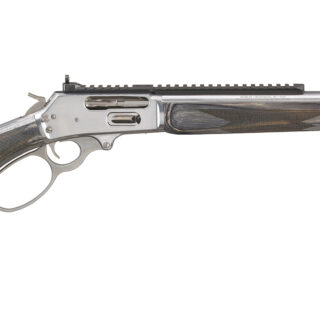 MARLIN MODEL 1895 SBL SERIES .45-70 Govt Rifle
$1,249.00
MARLIN MODEL 1895 SBL SERIES .45-70 Govt Rifle
$1,249.00
-
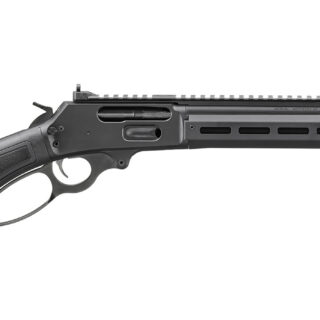 Marlin Dark Series 1895 .45-70 Govt Lever-Action Rifle
$1,149.00
Marlin Dark Series 1895 .45-70 Govt Lever-Action Rifle
$1,149.00
-
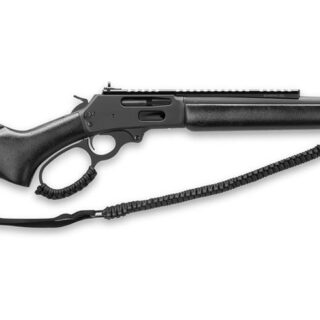 Marlin Dark Series 336 30-30 Win Lever-Action Rifle
$1,049.00
Marlin Dark Series 336 30-30 Win Lever-Action Rifle
$1,049.00
-
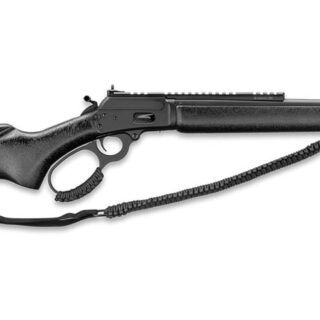 Marlin 1894 Dark 44 Special / 44 Mag Lever-Action Rifle
$1,099.00
Marlin 1894 Dark 44 Special / 44 Mag Lever-Action Rifle
$1,099.00
-
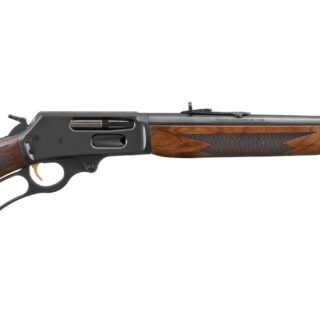 MARLIN MODEL 336 30-30 Win CLASSIC SERIES
$1,039.00
MARLIN MODEL 336 30-30 Win CLASSIC SERIES
$1,039.00
Tag Cloud
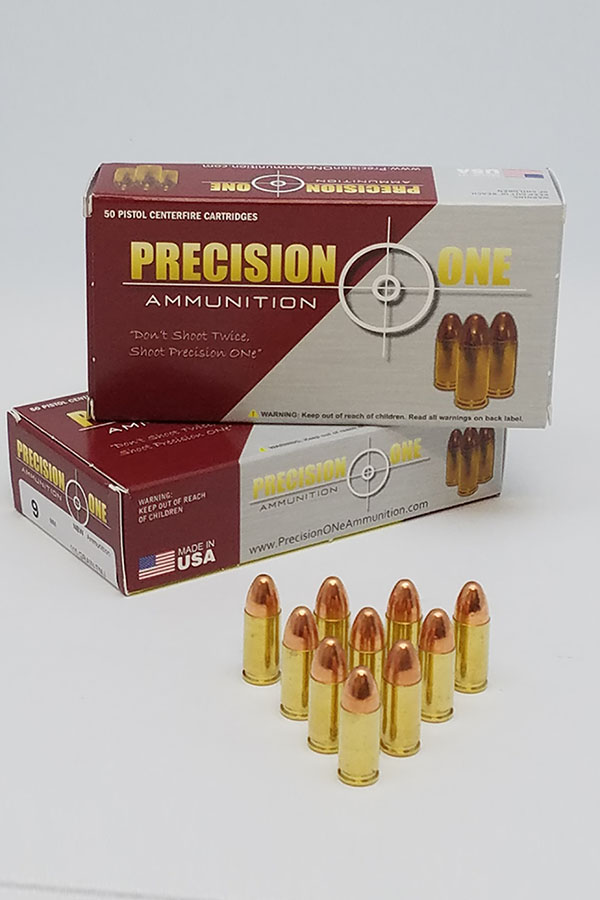
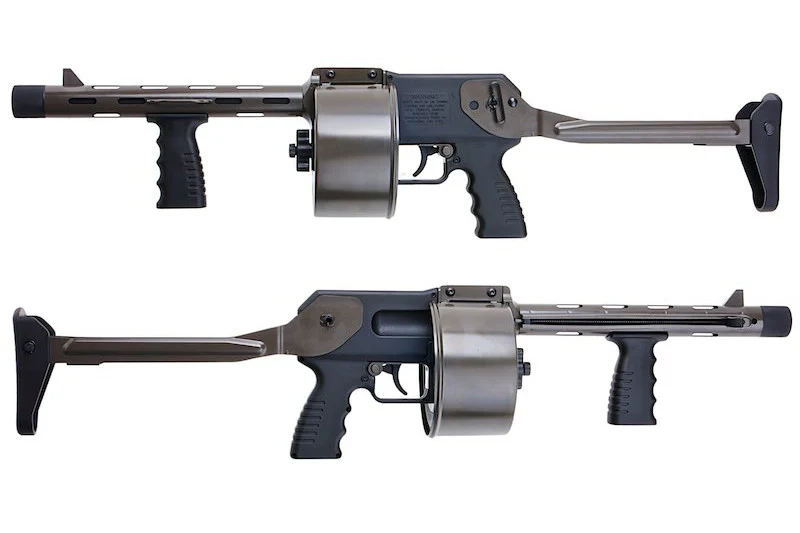
Street Sweeper Armsel Striker Shotgun is an American-made clone of the Armsel Striker, a revolving-cylinder shotgun designed in South Africa. It is a 12-gauge, high-capacity weapon known for its bulky appearance and cumbersome reloading process.
Armsel Striker origin
- Designer: The Armsel Striker was designed in 1981 by Hilton R. Walker, a citizen of Zimbabwe (then Rhodesia), who later moved to South Africa.
- Design and function: It features a 12-round revolving cylinder, similar in appearance to an oversized revolver. The original Striker used a spring that had to be manually wound to rotate the cylinder, while later versions advanced the cylinder with a foregrip.
- Flaws: The design suffered from several flaws, including a slow reloading time and a bulky cylinder.
Street Sweeper clone
- Manufacturer: In the U.S., a low-end copy of the Striker was manufactured by Cobray and SWD Inc. and marketed under the name “Street Sweeper” between 1989 and 1993.
- Marketing: Advertisements for the Street Sweeper featured aggressive slogans like “Make your streets safe and clean”.
- Legacy: The Cobray version was considered lower-quality than the original Striker.
“Destructive device” Street Sweeper Armsel Striker
Despite its high capacity, the Street Sweeper has a reputation for being an underwhelming and impractical weapon.
Negative reputation: Many users and gun historians describe the weapon as unreliable and poorly designed.
Cumbersome reload: The original design required users to manually eject each spent shell with a rod, making reloading a slow and clumsy process.
Heavy trigger pull: The trigger is heavy and can be uncomfortable to use.
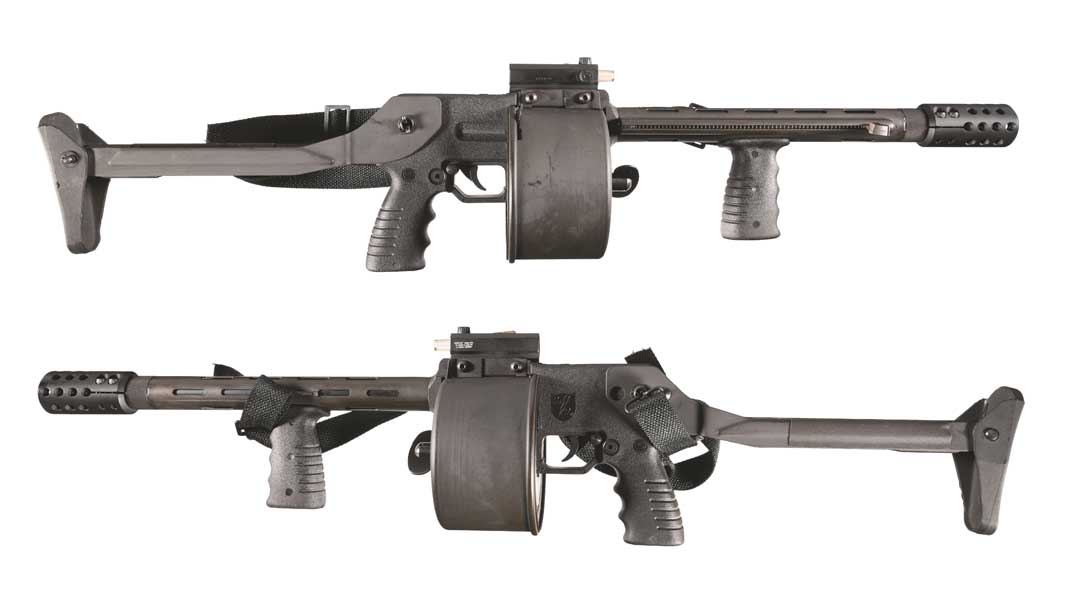
The infamous Street Sweeper shotgun.
The tension spring has to be manually tightened via a key on the front of the cylinder housing. Walker moved to South Africa and took his gun design with him, which was eventually adopted by the South African and Israeli police.
The ATF declared the Striker and Street Sweeper shotgun “destructive devices” in 1994 due to a lack of “sporting purpose.” Street Sweeper shotguns can be found for sale in Rock Island Auction Company’s Premier and Sporting and Collector Auctions throughout the year.
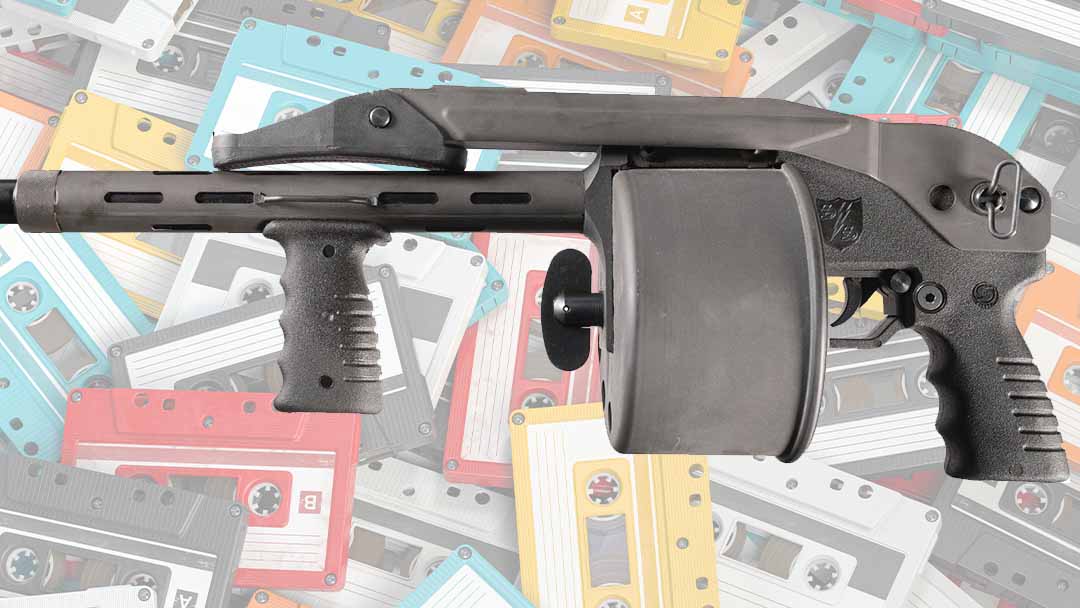
Lot 1589: Street Sweeper shotgun for sale! This Street Sweeper is an example of the late production guns using the Cobray design. The 18″ barrel is fitted with a perforated heat shield and has a Polymer receiver.
MAC-10 and Mitchell WerBell
A veteran of the Office of Strategic Services, master of marketing, soldier of fortune, Mitchell WerBell was subterfuge and conspiracy personified. He is also the designer of the modern silencer with an early company called Sionics.
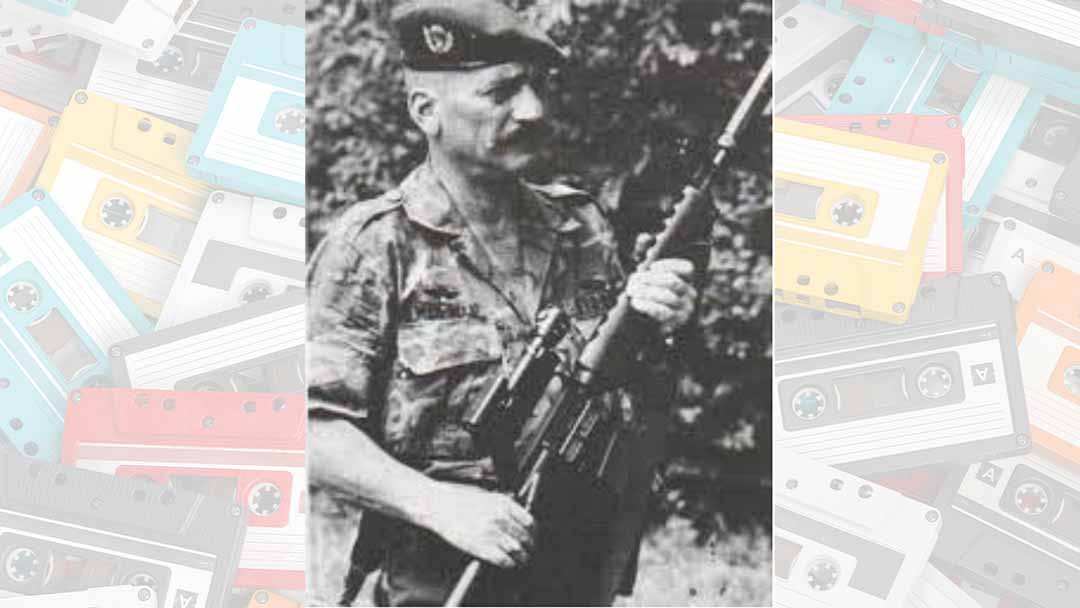
Mitchell WerBell was a “wheeler dealer” according to some government documents. He was a mercenary at one time and also ran a counter-terrorism training center, giving the world the Cobray.
Documents allege WerBell to have been in Dealey Plaza when President John F. Kennedy was assassinated and supposedly supplied silencers used by the gunmen in Dallas. That information didn’t come out until nearly 20 years after WerBell’s death in 1983. He was a known associate of a number of anti-Castro operatives.
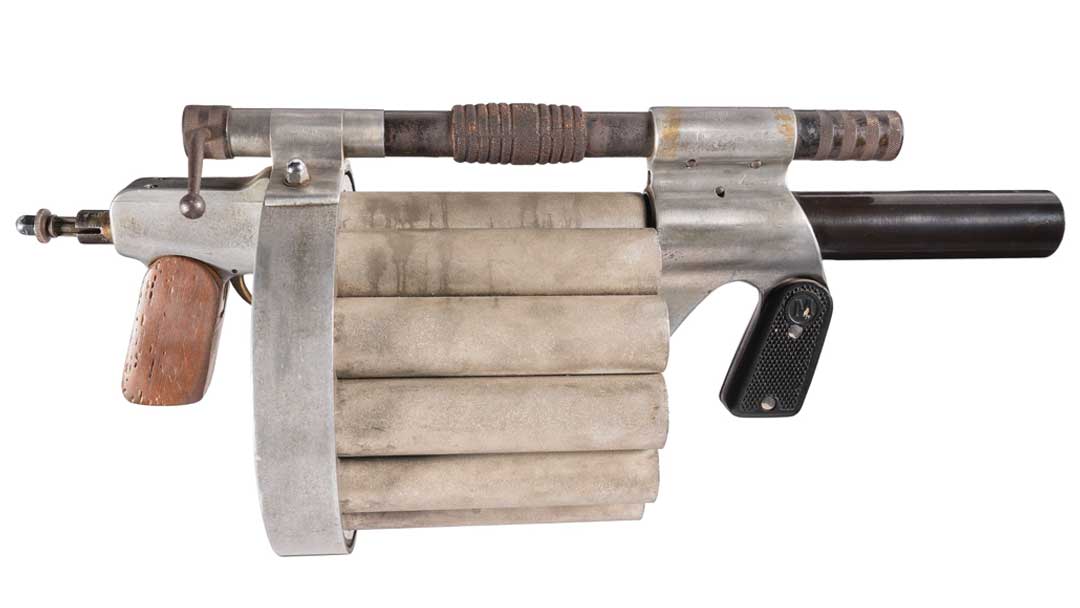
The Street Sweeper shotgun shares its drum-fed style of operation with tear gas launchers like the Manville Gun, introduced in 1935.
Though WerBell claimed he never worked for the CIA, others believed differently. WerBell found himself in Vietnam in the 1960s trying to sell his silencers to the Vietnamese as well as confer with intelligence officials. Prior to a trip in 1969, he met Gordon Ingram about his prototype .45 caliber machine pistol, which WerBell believed paired well with his suppressors. Despite WerBell manufacturing his own suppressors, Ingram designed the suppressor for his machine pistol. WerBell brought Ingram on board and Sionics became Military Armament Corporation in late 1970. The new company needed an updated logo that was part cobra and part moray eel: a “cobray” wrapped around the world.
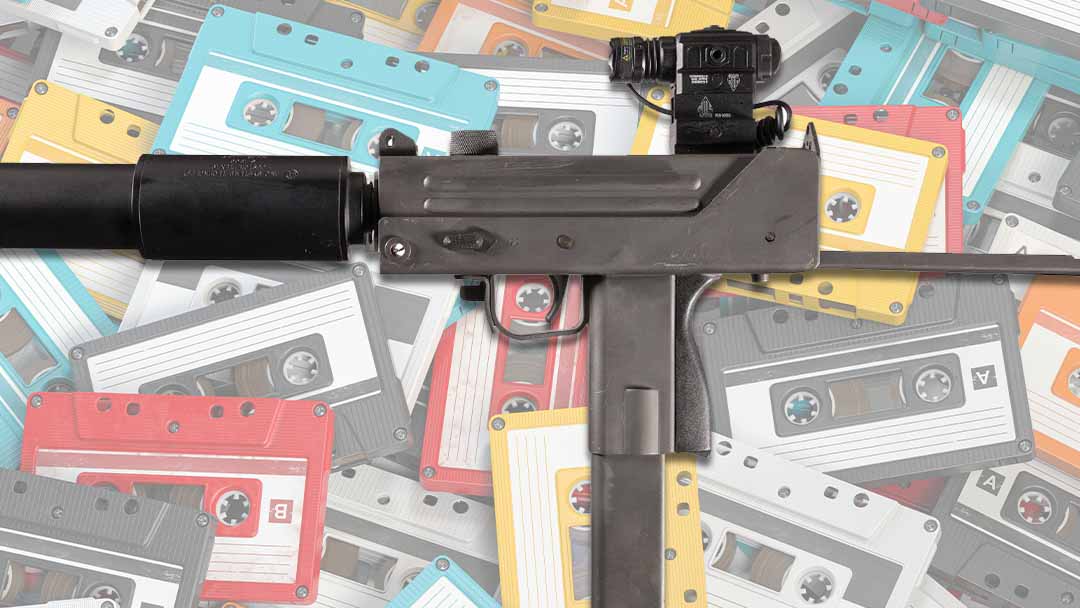
Lot 570: The MAC-10 was once described as a weapon “fit only for combat in a phone booth.”
The MAC-10 was chambered in .45 ACP, while the MAC-11 is a sub-compact version of the MAC-10 and fired .380 ACP ammunition. The MAC-10 got some attention in the 1974 John Wayne movie, “McQ,” where Wayne himself fires the gun.
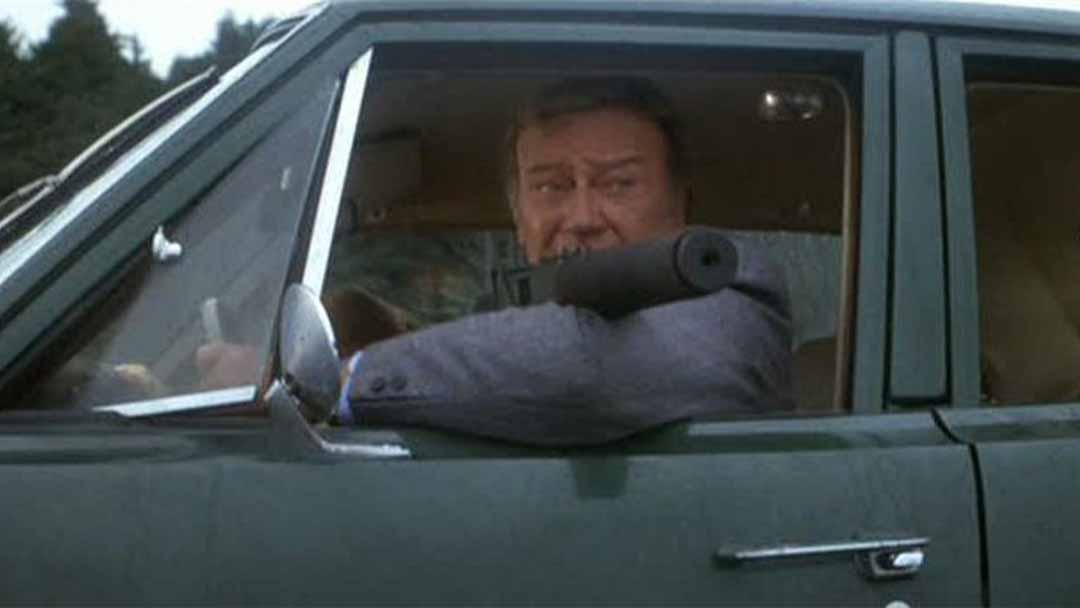
John Wayne’s character in the 1974 movie “McQ” wielded a MAC-10 to take on some bad guys.
Military Armament Corporation was a subsidiary of another company, Quantum, that was comprised of millionaire investors. WerBell and Ingram were ousted from Military Armament Corporation in May 1972. Ingram’s M10 and M11 machine pistols were never referred to as the MAC-10 or MAC-11 until Ingram and WerBell’s departure, after which the new monikers became official.
An arms-related indictment in 1973 against WerBell’s son was followed in 1976 by drug charges where the senior WerBell and others, including some former OSS colleagues, were charged with attempting to smuggle marijuana from Columbia. WerBell and the others were acquitted, but the legal issues soured WerBell on the arms business. He turned to security and counter terrorism.
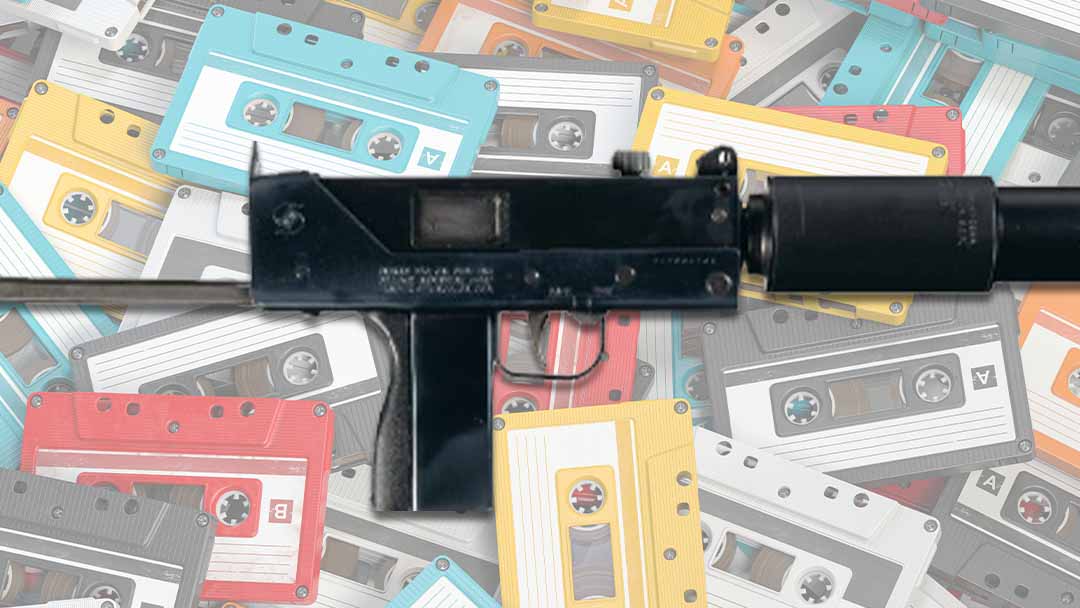
Lot 1581: This particular M10 is addressed to Powder Springs, Georgia and features a high polish blue finish associated with the limited run of “Police Model” M10s; while the Police program was initiated in Powder Springs, the bulk of the Police Model guns were made after the move to Marietta.
WerBell started a counter-terrorist training center in Georgia called Cobray International Inc. that was recognized in the late 1970s. The training center offered instruction in martial arts, small arms, personal defense weapons, and techniques for persons who must work under the threat of a terrorist attack. Werbell, as the founder, was described in a 1980 Soldier of Fortune article as “an experienced mercenary and weapons inventor.” CIA documents described WerBell as a “wheeler dealer.”
WerBell also associated with fringe politician Lyndon LaRouche and pornographer Larry Flynt, who allegedly paid WerBell $1 million to murder Hugh Hefner, Bob Guiccione, Frank Sinatra, and Walter Anneberg. WerBell died in 1983 shortly after he was allegedly paid for the hits.
Cobray Strikes
Returning now to Wayne Daniel. His fellow investors in RPB fell into legal problems. One was convicted of bribing a prosecutor. Two others, Robert Morgan and Jack Leibolt, were involved in the Medellin drug cartel. Morgan was convicted and sentenced in 1980 to 30 years in prison for smuggling two tons of marijuana into Florida. Leibolt went underground (He would eventually plead guilty to a cocaine conspiracy charge in 1990). With the ATF leaning on the company, Daniel liquidated it in 1982, reorganizing as S.W. Daniel or SWD, named after his wife, Sylvia Daniel.
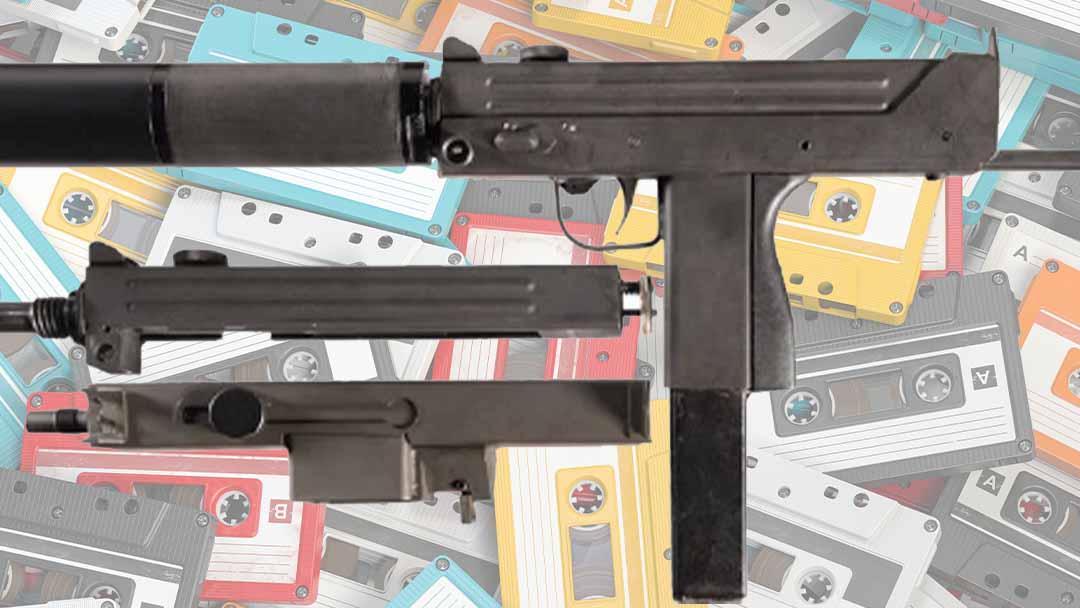
Lot 1590: A descendant of Ingram’s M10, the M11/9 is made with a slightly longer receiver than the M11 to accommodate a caliber upgrade from 380 ACP to 9mm Parabellum and allow for a longer range of bolt travel to dampen felt recoil.
The ATF alleged the company was selling conversion kits to make its semi-automatic M11 into fully automatic weapons. In the meantime, the Daniels hatched a scheme to sell parts to make unregistered silencers.
The Daniels were charged in 1985 with conspiracy to sell illegal silencers. Eventually the couple, by then divorced, ended up paying a fine on misdemeanor tax charges. They retained their federal firearms license and continued to do business as SWD.
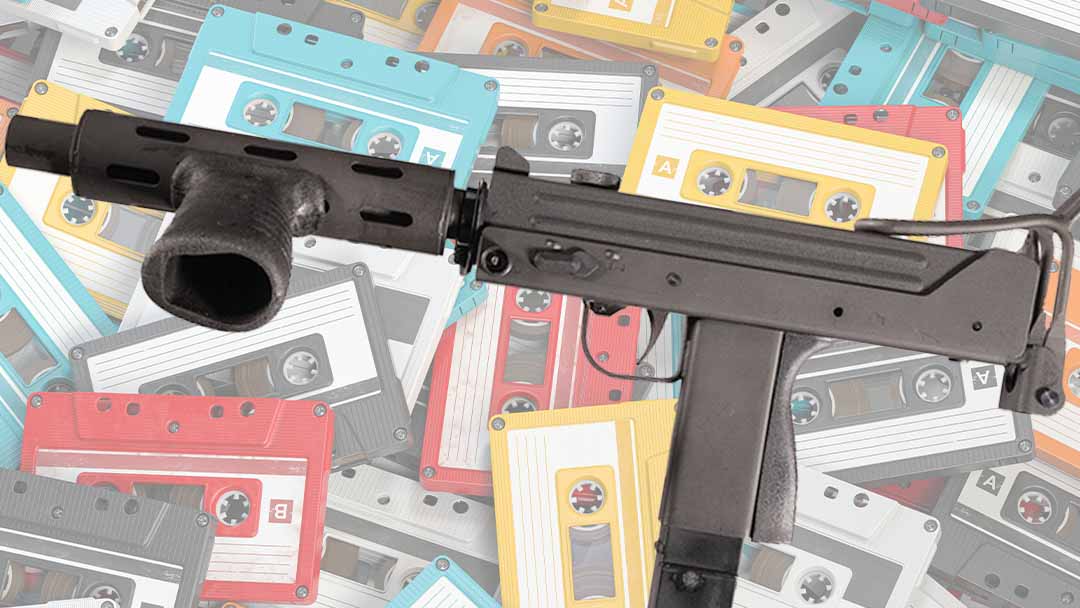
Lot 3365: A descendant of Ingram’s M10, the M11/9 is made with a slightly longer receiver than the M11, allowing for a larger degree of bolt travel and allowing an upgrade from 380 ACP to 9mm Parabellum for a significant firepower boost. This gun bears Cobray markings on it.
This is where the Street Sweeper truly enters our story. Cobray marketed the Street Sweeper shotgun beginning in 1989 along with the M10, M11, M11/9, and others. Word in the gun community was that Cobray’s weapons were of low quality. The 1994 assault weapons ban specifically named the MAC-10 so it couldn’t be sold for 10 years.
The same year as the assault weapons ban was the year SWD surrendered its federal firearms license. It continued to sell firearms through companies owned or associated with SWD, including Mountain Accessories Corporation (MAC), Full Metal Jacket (FMJ), Cobray Firearms, Street Sweeper Sales Inc., All Purpose Ammo, The Ultra Force, Et Cetera, S&L Sales, D&L Sales, Excalibur, and Leinad.
An ad in Shotgun News declared the Street Sweeper “Delivers Twelve Rounds In Less Than Three Seconds!!!!” The ad continued, “Time for spring cleaning. Why try cleanups with inadequate equipment?? Buy the machine designed to clean thoroughly on the first pass.”
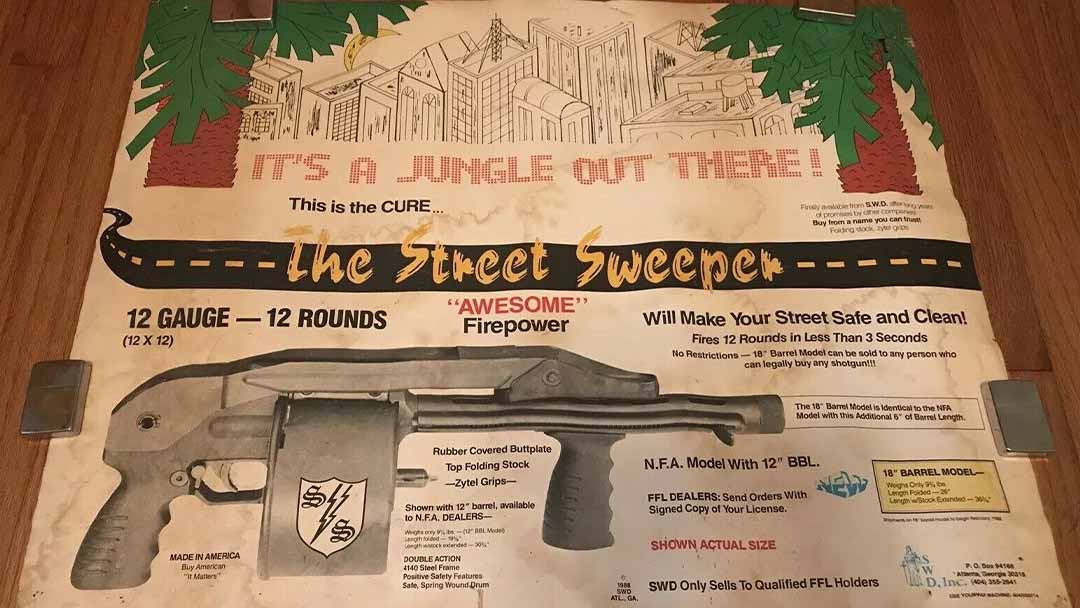
A period advertisement promoting the Street Sweeper shotgun for sale. There are two 18-inch barrel Street Sweepers, Lot 1589 and Lot 1599, in Rock Island Auction Company’s May 13-15 Premier Auction.
Cobray added another version of the Street Sweeper shotgun that was chambered in .45-70 caliber and didn’t have a foregrip in order to be considered a pistol. The company cheekily dubbed it the Ladies Home Companion. A Maryland law enforcement official once called it “a sick joke.”
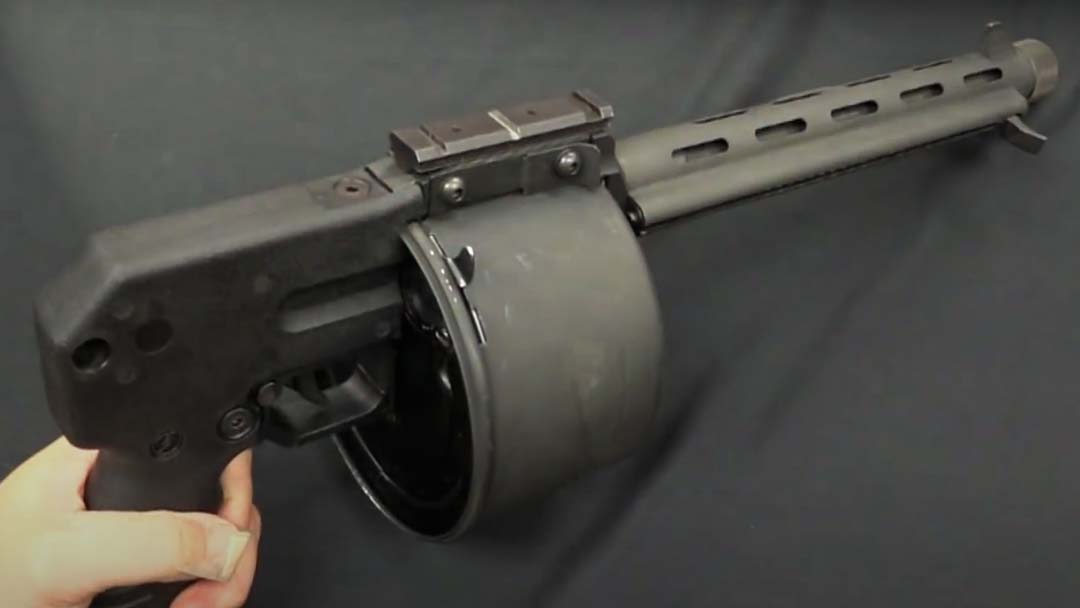
The Ladies Home Companion, a “pistol” produced to use surplus Street Sweeper parts.
Destructive Device
At the time of the assault rifle ban, the ATF took a look at the Street Sweeper shotgun, as well as the Armsel Striker, and whether they were destructive devices.
Under the National Firearms Act, a destructive device is a weapon with a bore diameter of more than half an inch. A 12-gauge shotgun has a bore that wide, but shotguns are exempt from being declared destructive devices if they have a sporting purpose, like hunting or trap shooting.
The ATF noted that the Street Sweeper’s 12 rounds could be fired off in three seconds or less, and so determined in its 1994 ruling that the shotguns didn’t meet the sporting purposes exemption and would be considered destructive devices:
“The Striker – 12/Streetsweeper is a shotgun with a bore of more than one-half inch in diameter which is not particularly suitable for sporting purposes. The weight, size, bulk, designed magazine capacity, configuration, and other factors indicate that the Striker – 12/Streetsweeper is a military-type shotgun, as opposed to a shotgun particularly suitable for sporting purposes.”
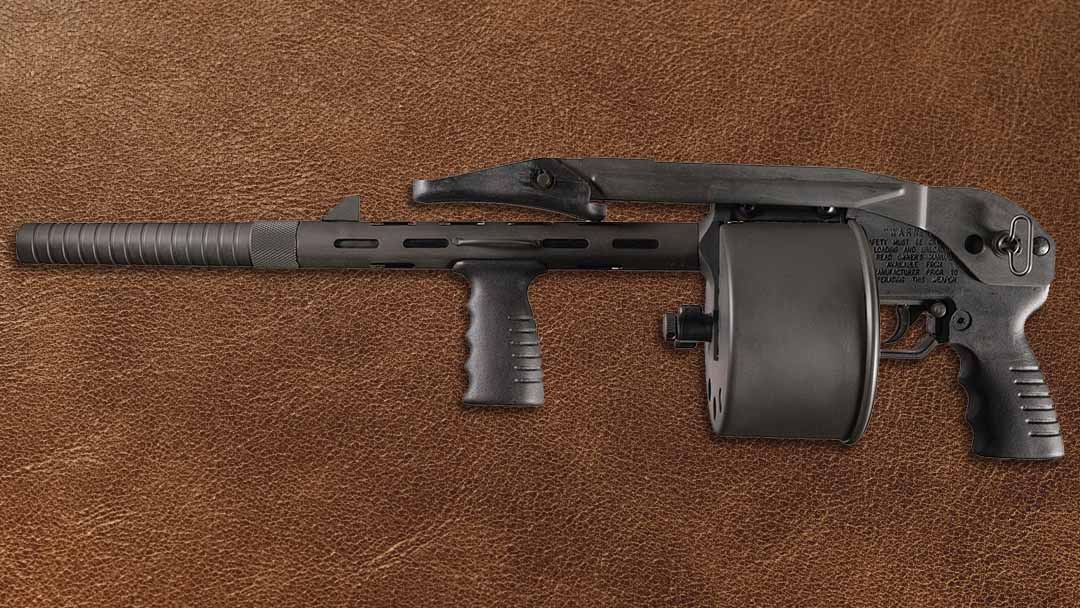
Revolving rifles and shotguns were largely supplanted by more practical repeating firearms, but there are some fascinating modern revolving long guns such as this Striker 12 that features a distinctive 12-shot spring-powered cylinder.
In announcing the decision in March, 1994, Treasury Secretary Lloyd Bentsen said, “I’m a sportsman. I use shotguns. This isn’t exactly what I’d take on a duck hunt.”
Under the NFA, the Street Sweeper shotgun now required a $200 transfer tax, must be registered, and the manufacturer had to pay a $200 per firearm tax.
Screen Time
It is only natural that a marginalized but dramatic gun get plenty of screen time in B-level action movies. While it was used by Richter and Mars Colony troopers in blockbuster “Total Recall,” the Street Sweeper shotgun also found its way into such movies as “Hard Hunted,” “Men of War,” “Bad Blood,” “Death Sentence,” and “Wicked Blood,” according to Internet Movie Firearms Database.
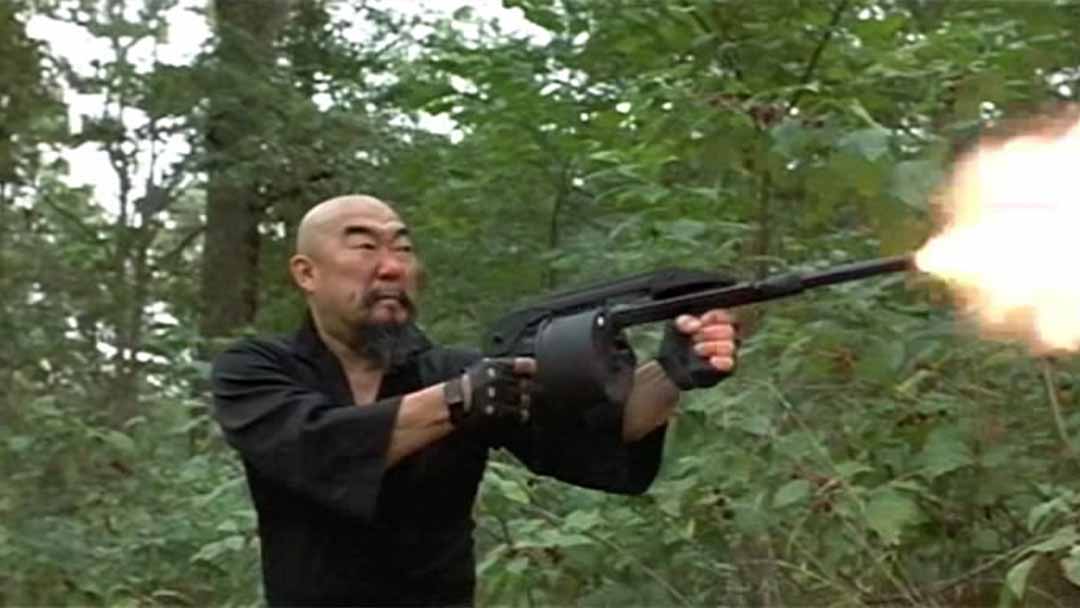
The Street Sweeper shotgun was popular in B-level action movies of the 1990s, like ‘The Dallas Connection’ as seen here.
Gun Review
Those who have used the Street Sweeper shotgun often don’t speak well of it, calling it cumbersome to load and say the cylinder gap allows significant discharge to escape. The trigger pull is heavy and the folding stock has sharp edges that could be dangerous if coming in contact with the user’s cheek.
Street Sweeper Shotgun for Sale
Despite its inelegant design and questionable purpose, the Street Sweeper is a gun that brings equal parts of a mercenary past, the drug war of the 80s, an air of illegality, and danger that a collector can appreciate. The SWD/Cobray Street Sweeper shotgun offers all of those things to someone who appreciates its stigma and curious design.
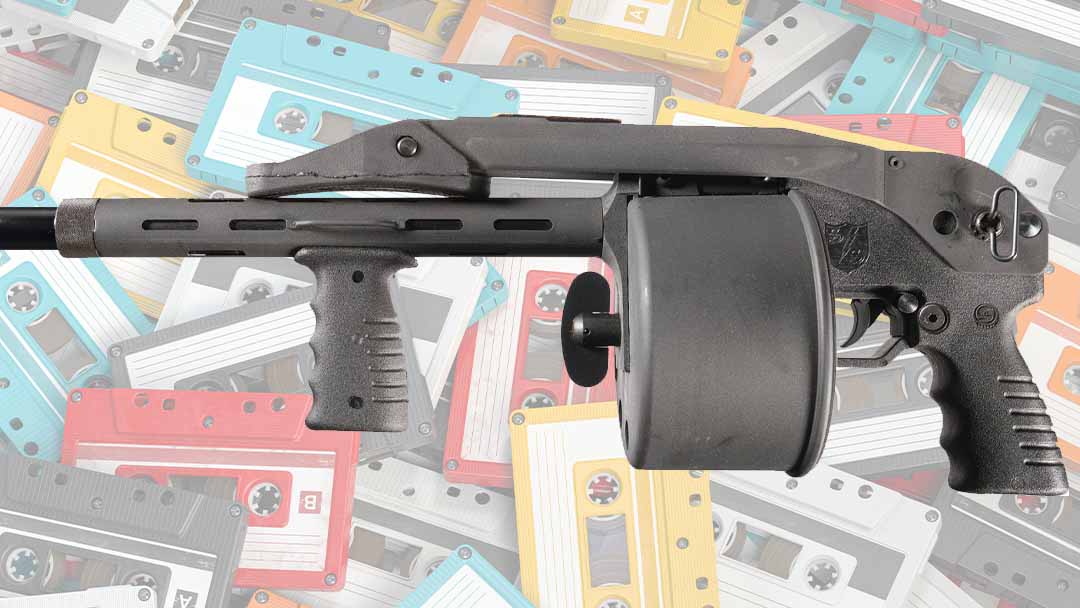
The Armsel Striker, also known as the Sentinel Arms Co Striker-12, Protecta, Protecta Bulldog and SWD Street Sweeper is a 12-gauge shotgun with a revolving cylinder that was designed for riot control and combat.
History
The Armsel Striker was designed by Hilton R. Walker, a Zimbabwean (formerly Rhodesian) citizen, in 1981. Walker subsequently emigrated to South Africa, bringing with him the design for the Striker shotgun. His shotgun became a success and was exported to various parts of the world, despite some drawbacks. The rotary cylinder was bulky, had a long reload time, and the basic action was not without certain flaws.
Walker redesigned his weapon in 1989, removing the cylinder rotation mechanism, and adding an auto cartridge ejection system. The new shotgun was named the “Protecta”.[2][3]
A copy of the Striker was made by the American gunmaker Cobray and marketed as the “SWD Street Sweeper” from 1989 to 1993.[4]
Design and features
The Striker’s most prominent feature is a 12-round capacity revolving cylinder. Due to the size of the cylinder, unlike usual revolvers which rotate the cylinder with the trigger pull, the Striker utilizes a clock spring that has to be wound manually. Reloading the Striker is a rather cumbersome process as there is no automatic ejection; shells need to be ejected with an ejector rod on the right side of the barrel, before loading the cylinder one shell at a time, advancing the cylinder for each shot with a lever on the back of the gun, before finally winding up the cylinder spring.
The later Protecta model changed the mechanics of the weapon substantially. The cylinder spring was removed; instead the cylinder is advanced by rotating the barrel shroud and attached foregrip, turning the weapon from semi-automatic to manually operated. The Protecta also featured an auto-ejection mechanism that vents excess gas from firing into the cylinder to eject the previously fired round, somewhat simplifying the reloading process. It still retains the ejector rod, as the last round must be ejected manually.
Licensed copies produced by Sentinel Arms combined the semi-automatic, spring-driven design of the Striker and the auto-ejection mechanism from the Protecta into one weapon.
Other features were a top-folding stock and barrel lengths of 18, 12 and 7 inches.[5]
Availability in the United States
After a proposal by the Brady Campaign in 1993, Treasury Secretary Lloyd Bentsen declared the Striker and Street Sweeper destructive devices under the National Firearms Act the following year, their transfer and ownership becoming regulated by the Bureau of Alcohol, Tobacco, Firearms and Explosives (ATF).[6][7]
Written by contact@midwayweapons.com
Archives
Categories
Best offers
Join Risk Free
30 days refund
100% Safe
Secure Shopping
24x7 Support
Online 24 hours
Best Offers
Grab Now
Free Shiping
On all order over
Our Reviews
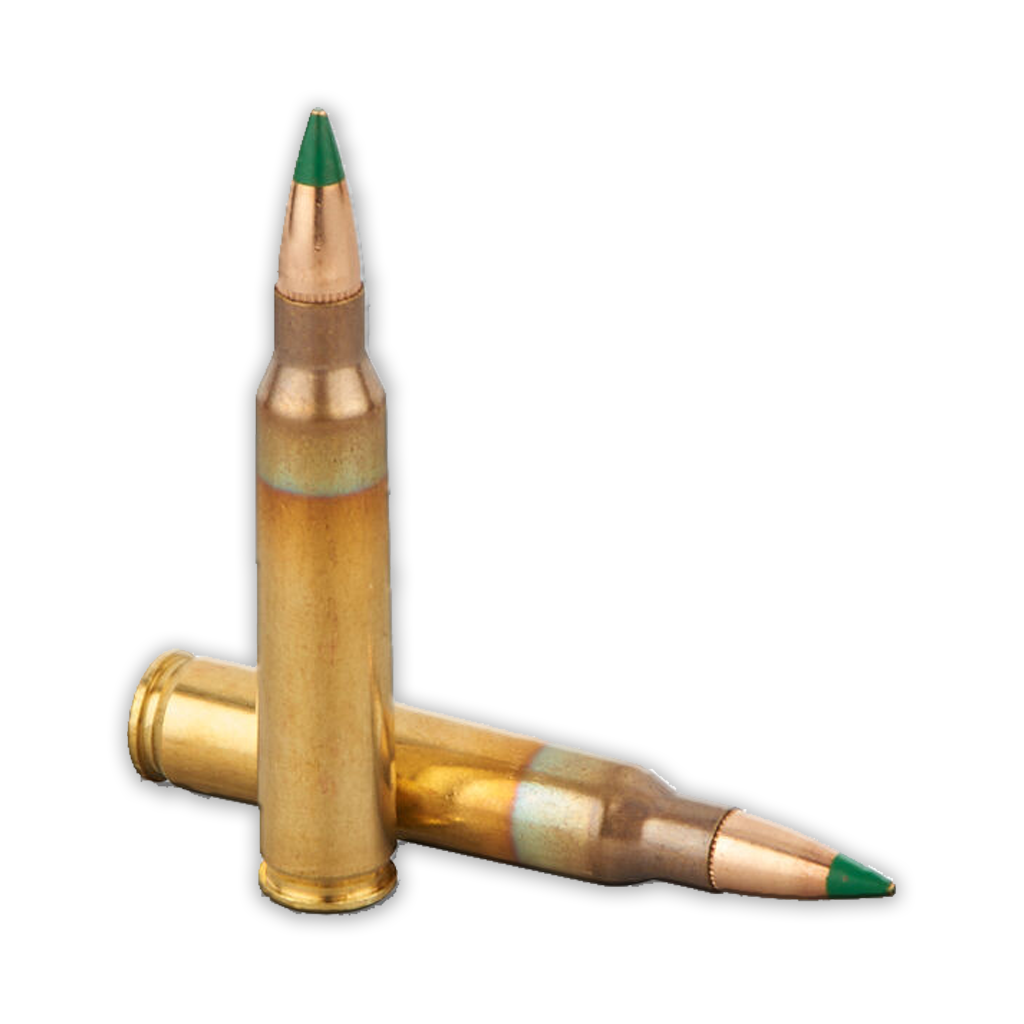
Yankee Tankie
Wow the green tip ammo really takes me back to the GWOT days in Iraq. One thing about these nato penetrator rounds I'd have to say is boy my boys and I did so much unwanted and unconsentual penetrating with these rounds it almost rivaled a slow day on Epstein island. 😆
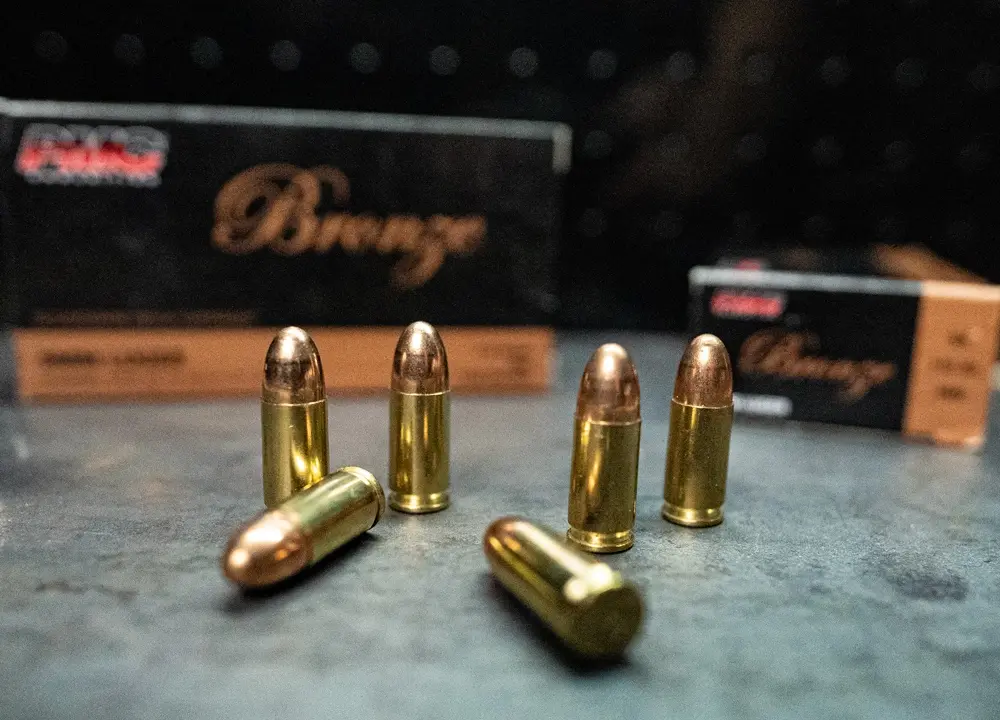
Ricky Overtrue
I have been shooting imi for years. It's clean, reliable and most important accurate. Combine that with lightning fast shipping and you have a winning combination. Thanks Midway Weapons.
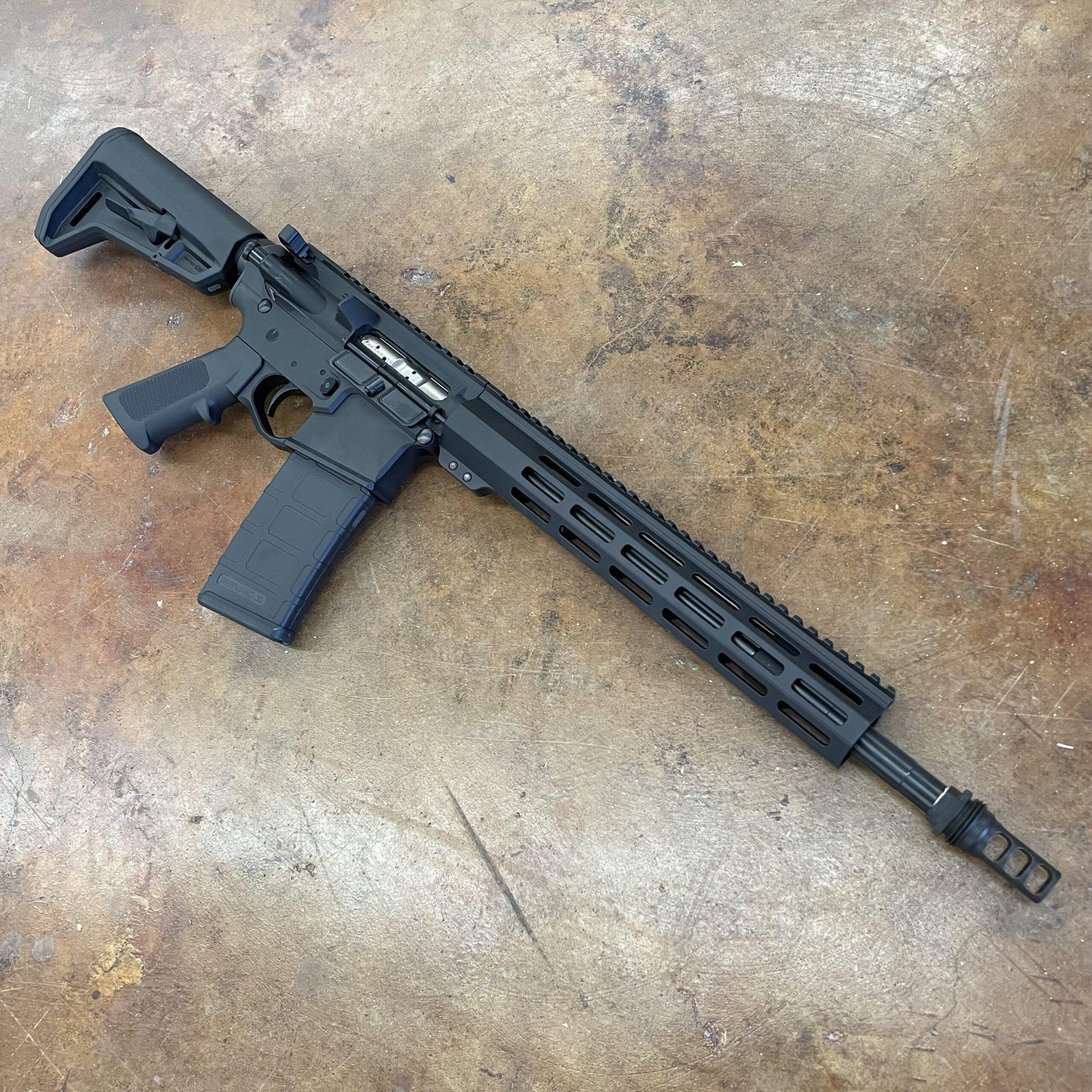
Jake L.
Shot this ammo on a 200 yard range, with an 14.5 inch AR and a red dot. Almost all of the hits were in a 6 by 6 inch target, nicely clustered together. I was quite pleased, since I hardly could see the target
Latest News

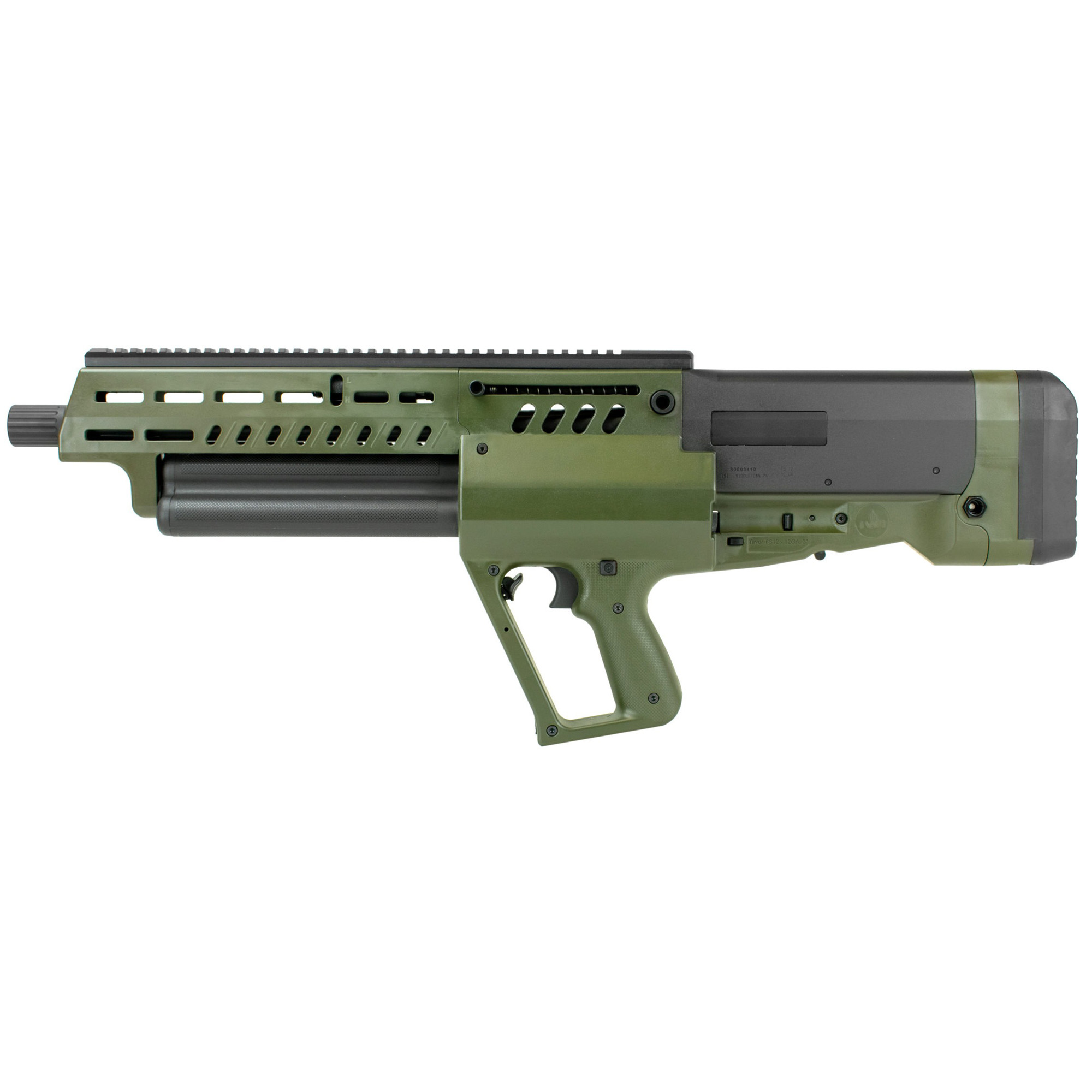

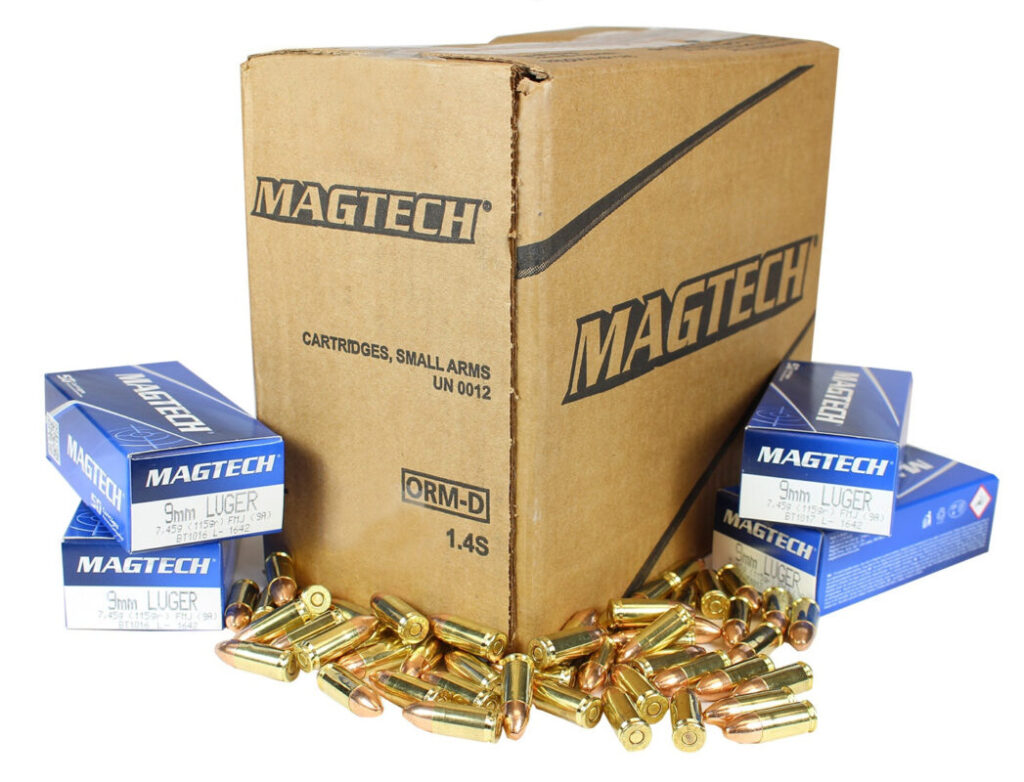

Leave a Reply